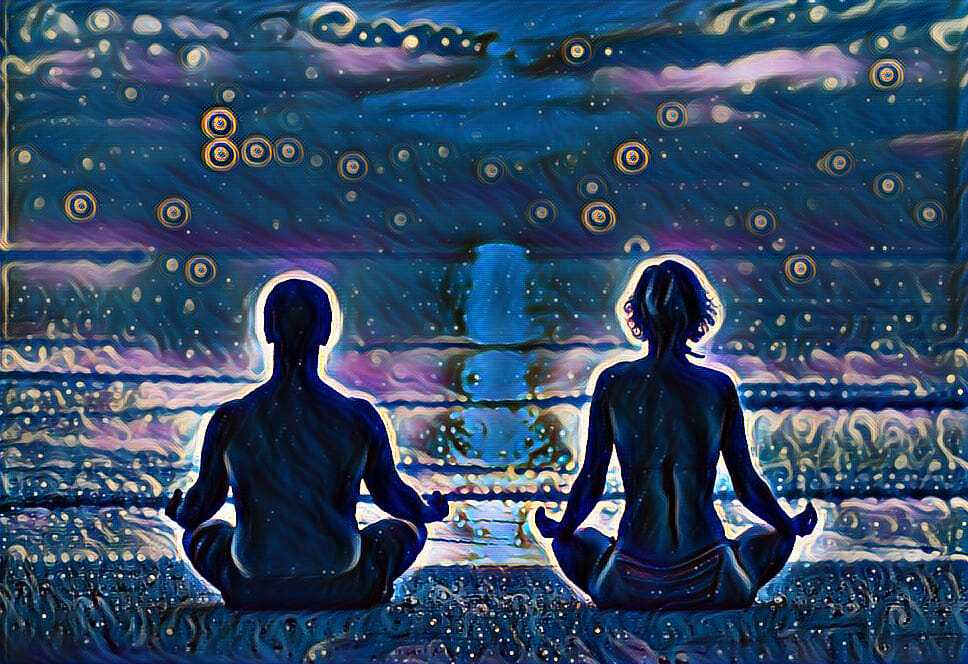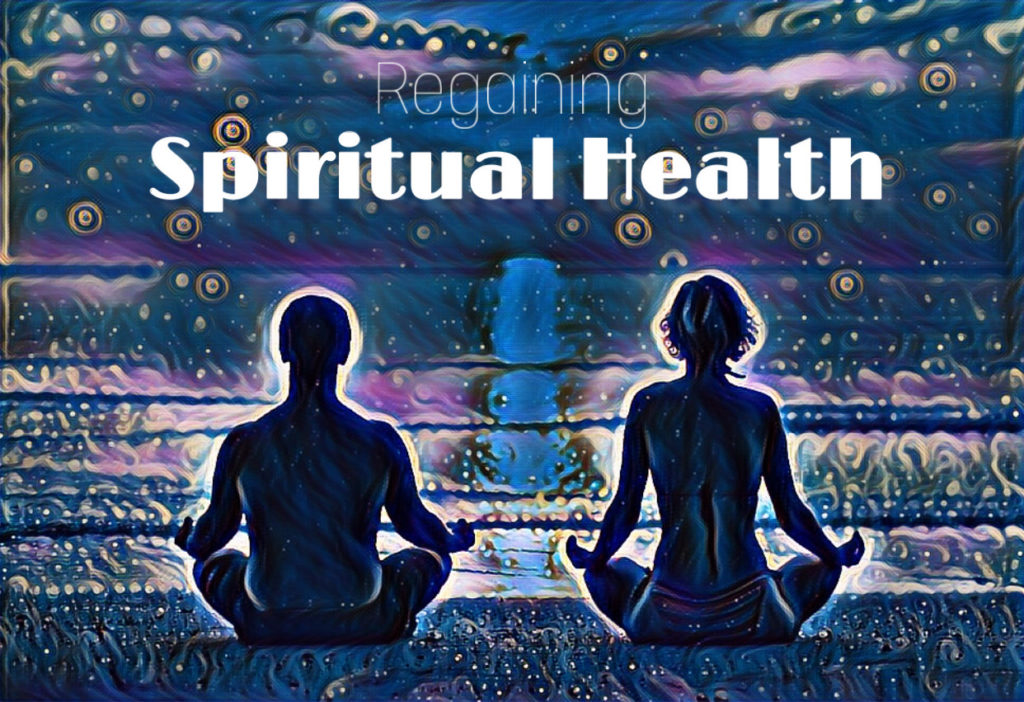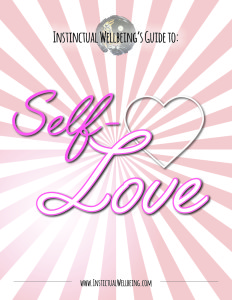Welcome to Part 3 of the Total Wellness Pyramid series!
If this is your first time here or if you simply need a reminder, the reason I put this pyramid together and began writing about it is because of my sincere belief (and personal experience) that true wellness requires being attentive to all aspects of your life, not JUST diet or lifestyle, which is what we see most of the common treatment narrative for autoimmune conditions and other chronic illness being about.
Over the past 10 years I’ve struggled with a myriad of symptoms and conditions like Hashimoto’s thyroiditis, fibromyalgia and arthritis. Like many, I grew weary of the “traditional” Western medicine approach of bouncing me around from specialist to specialist, misdiagnosing me, or flat-out telling me it was all in my head.
I quickly found functional medicine and that was extremely beneficial, however, it only got me about 80% of the way. It was up to me to figure out what the other 20% holding me back from being well was, and then commit to making consistent change that helped to address it.
This pyramid is a reflection of everything I’ve learned throughout my 10+ years of learning, growing, and refining my path to wellness.
If you’re just starting out, here are the first two in the series for reference. Please feel free to check them out and then return to this post so that you can have a full picture of the “pyramid philosophy” to wellness.
Part 1: Introduction, and Physical + Lifestyle Healing
Part 2: The Mental + Emotional Aspects of Healing Autoimmunity
And with that, we reach the top of our pyramid: Spiritual Healing & Awareness for autoimmune conditions (and other chronic illnesses).
By the way, I understand that sometimes talking about spirituality can be uncomfortable, but I encourage you to stick with me through this post because you owe it to yourself to explore every aspect of your self, not just the “boots on the ground” type stuff.
Give it a read-through and then just sit with the information without judgement — how does it feel in your body? What beliefs or memories does it bring up for you? I also ask some questions at the very end of the post to encourage this reflection — give it a try. You never know where it might lead. 🙂
Diving into the pyramid
In a way, everything we’ve talked about so far has been in preparation for this — from reconciling your finances and establishing a daily routine, to releasing limiting beliefs and coming to peace with your body, all of that has set the stage for being able to fully heal from chronic conditions like autoimmune disease and begin to get your life back.
And why is that?
Well, just like Maslow’s Hierarchy of Needs places Self-actualization (i.e. the human realizing his/her/their full potential), at the top of the pyramid instead of the bottom, the Total Wellness Pyramid acknowledges that total wellness is most likely to happen once a solid foundation is established. Because as humans, it’s very hard to be creative, or sit to meditate for 20 minutes, if we’re sick and in pain, or have bills piling up and financial concerns, or in an unhealthy relationship. We have to address those foundational aspects before being able to focus fully on spiritual fulfillment and total wellness.
The pyramid is also constructed the way it is to acknowledge the point that healing and health isn’t just one thing — it isn’t just diet, it isn’t just supplements, it isn’t just self-care. There are so many layers to complex conditions like Hashimoto’s or Celiac disease or rheumatoid arthritis, that we can’t just stop at the physical, or even the emotional meanings behind disease. We also need to realize that many diseases do have spiritual implications, and that exploring the spiritual root behind autoimmunity in particular can help lead to greater fulfillment and healing.
What is Spiritual Awareness?
Spiritual awareness is the process of waking up to something greater than your small sense of “self.” It’s gaining knowledge that you are part of something larger, of surrendering to a higher power and to understanding your place in the universe.
Why is spiritual wellness important?
If you recall from Part 2, I mentioned that it’s important to know that in many traditions (and in my personal belief system), the disease pattern evolves like this:
Spiritual → Emotional → Mental → Physical
In the “West” (and I think, in particular the United States), we only see disease as a physical process. We usually only think about being sick and having symptoms, and then we go about trying to heal through only diet, exercise, supplements, surgeries, etc. (in other words, we try to get better through “physical” remedies).
There are people and practitioners who are beginning to accept and teach that illness is not just physical (like many yoga teachers, naturopaths, acupuncturists and health coaches), but for the most part we still believe the cause of a disease is a result of our lifestyle habits and diet alone.
The reality is that illness is a sum of many parts. Yes our lifestyle can – and does – impact our health, but our mental and emotional states also contribute to it. Another area that people typically don’t think of as being impactful to our physical health is our spiritual health, which is why we’re exploring that today.
So let’s talk for a moment about how to regain spiritual health. We’ll use myself as an anecdote since that’s typically the best way to illustrate something that’s a bit more intangible like spirituality.
Understanding Spiritual Health – My Journey
For the first 25 years of my life and into the time when I began trying to heal from my chronic health conditions, I was a self-declared atheist / agnostic. At one point I even identified as a nihilist or existentialist, philosophies which basically say there is NOTHING “out there” and NOTHING before or after you die.
So it’s safe to say that I didn’t believe in an afterlife and I didn’t believe in a higher reality. I believed in logic and reason; in philosophers and speculative authors and tortured poets. I was so tightly wound and heavily guarded that I had lost all connection to any sense greater than myself. I was spiritually desolate.
It took me a long time, but through a series of tightly interwoven events, I began opening up to my own concept of “God” and discovered that “God” could – and does – exist outside of traditional religion and especially outside the Catholic church. 🙂
Very slowly I learned to trust God (or a benevolent Universe or Mother Gaia or whatever you want to call the omnipotent force that keeps the planets spinning and the stars shining). I began to accept that I wasn’t alone, that my life wasn’t meaningless. And I began to have hope that perhaps there was something beyond all this to look forward to.
Quite unexpectedly, all of this spiritual work contributed greatly to healing my physical symptoms and helped me regain strength that I hadn’t even realized was missing. That strength couldn’t come from a gym or from supplements or from collagen powder though: It had to come from within; from building hope, from feeling inspired, from feeling connected to something bigger than myself. It came from regaining my spiritual health.
My secret to regaining spiritual strength
Do you know what the most important part of regaining my spiritual health was?
Forgiveness.
For so long I had blamed “God” (in quotes because again, many people call it many different things) for my troubles, my problems, my traumas, for giving me a body that apparently didn’t function properly, for giving me hurts I couldn’t seem to get over. I saw hatred and violence and sadness everywhere in the world and thought that surely no God would allow that to happen. And I felt mad at “Him” for putting me here — on this planet, in this body, seemingly alone. I know that sounds very melancholy but at the time it’s truly how I felt, and I’ve heard others say similar things about their own lives.
So I had to forgive. And I mean truly forgive — like, the crying-on-the-floor-forgiveness. And then I had to learn to love again, and to be open. And do you know what? When I forgave and accepted God… I immediately began to love and accept myself. And when this happened, my health improved quicker than anything I could have imagined.
My doctor even asked me at one point what I was doing to get better so quickly (because surprisingly even my labs reflected this “deeper” work I was doing), and I told him I was praying and meditating for the first time. He smiled and said, “Well keep doing that because it’s working!”
Final Thoughts
It seems to me that in our culture there is momentum and general acceptance toward self-love and self-acceptance, but we try to carry that burden ourselves. We believe that it’s entirely up to us to love ourselves and to untangle all our past hurts to make that possible.
Some of this is true; we have to do the tough work and nobody can do that but us. For me though, I had to knock down spiritual walls that I threw up long before I could begin to love myself. Because otherwise there was just this gaping hole and disconnect that no amount of positive affirmation or bubble baths would ever fix. And I think that’s often overlooked.
So for this last stage of the Total Wellness Pyramid, I think what I want to just get across is: Don’t neglect your spiritual self. Many reputable, modern day teachers, authors and practitioners remind us that we are not physical beings alone — but that we are a “spiritual being in a temporary physical body;” we are just visitors passing through. And due to this, we must challenge ourselves to open our hearts to whatever concept of the “divine” works for you.
If I had to assign one piece of “homework” for this level of the pyramid, I’d say to start journaling about your relationship to the infinite. In my own life I found this to be the quickest way to crack that egg open and get to the spiritual roots that I was seeking.
As you journal, here are some prompts to consider:
- What does your relationship with the infinite look like?
- How do you feel when you think of God — happy? Sad? Angry? Why do you think this is?
- Do you believe in God? Why or why not?
- If you don’t… have you never believed in God, or can you remember a time when that first barrier was built?
- If you do, could that relationship be stronger? How could you be less of a passive believer, and take action to really cultivate and nourish your spiritual self?
- What does it mean to be a spiritual being? How do you think this can help you with your healing?
I truly believe that this is the final piece of the healing puzzle. Along with eating nourishing foods and healing our guts and cultivating a sense of community and resolving past traumas, we need to forgive “God” in order to connect deeply to ourselves. We need to believe that we are part of something grander than just our 85+ years here on Earth; that we are interconnected to an aspect so vast and spectacular that most of our human minds cannot even comprehend it (yet).
When we release the burden of feeling alone and disconnected, I think we can truly start to heal.
As a final parting note: I would like to encourage you, when the time is right, to pick up a copy of Autobiography of a Yogi by Paramahansa Yogananda. I have no direct connection or incentive to recommend this book, only that I think it’s probably one of the best gifts I could give you on your path to spiritual healing, if you should feel so inclined to read it.
Wishing you the best on your journey,
Mitch




